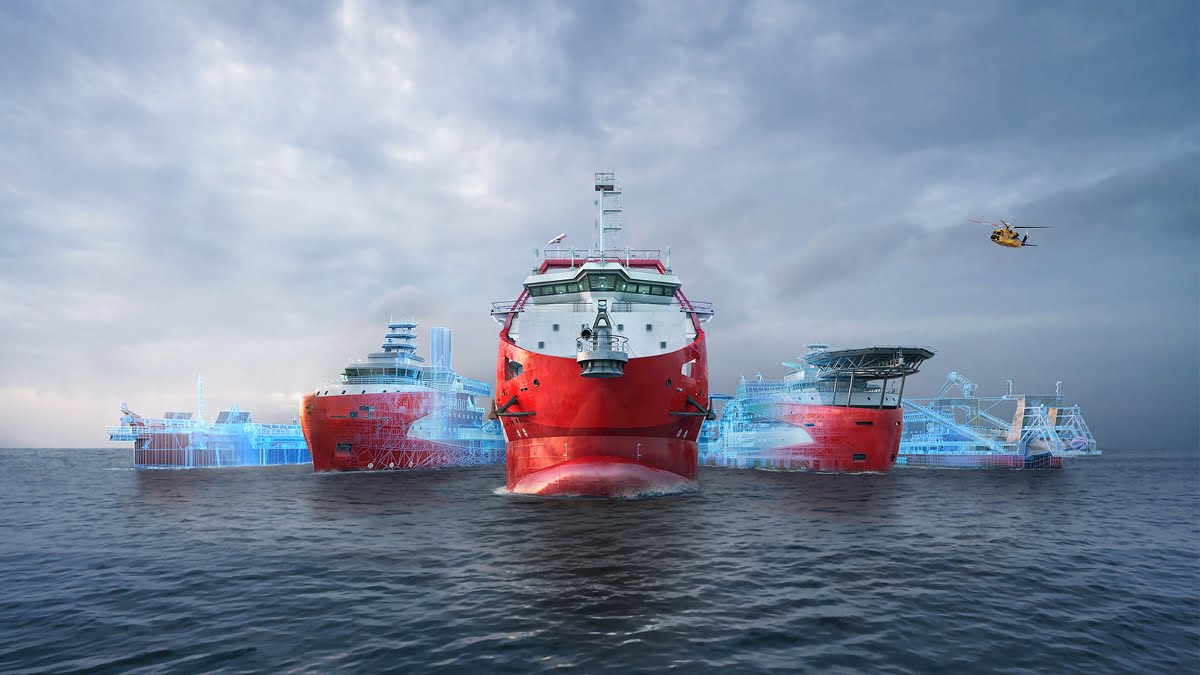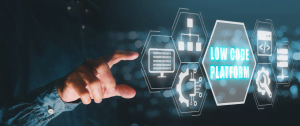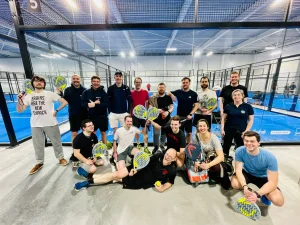Smart automation in a complex industry: how to make ship management and maintenance more efficient with low-code
19 September 2024 • Blog

The maritime industry is moving full steam ahead toward smart maritime; the use of technology that will make shipping smarter, safer and more sustainable. The advantages of low-code are well known, but how can this technology help the maritime sector in practice? You will find out by looking at examples at Van der Loo Yacht Interiors, Heinen & Hopman and Royal IHC.
Van der Loo Yacht Interiors: Producing more efficiently with low-code
Building ships is complex. Virtually every ship requires customization, the technical complexity is great and expertise in various fields is needed. In the process, expensive materials and specialized parts are used.
This makes building a ship a costly project, where any error or inefficiency can lead to significant budget overruns.
To keep the production process running smoothly, good insight into the status of work and the use of materials, among other things, is crucial. Low-code can help with this. With low-code, apps and dashboards can be built as an extra layer on top of the existing IT landscape. This unlocks crucial information and gives shipbuilders and their customers 24/7 insight into the status of ship construction.
Take Van der Loo Yacht Interiors, for example. This builder of interiors for exclusive yachts wanted to eliminate waste of precious materials used in the construction of a luxury yacht. With Bizzomate, Van der Loo built “Furniture control,” a low-code app that provides insight into the reasons for repair work (check the case). As a result, Van der Loo has more insight into what goes wrong, the production process is optimized and, in case of errors, can switch faster with the relevant department.
Heinen & Hopman: The use of low-code in automating complex processes
Most shipyards have long been convinced of the added value of automating manual processes. However, it is not always easy to streamline the many specialized activities within this sector with apps. ‘Off-the-shelf’ software is far from always available and existing systems are often not suitable for specific processes within this industry.
Low-code apps are easily custom-built and offer extensive offline and online capabilities, which is of great importance for remote monitoring from the quay and for shipboard operations. At Heinen & Hopman, a specialist in marine climate control systems, low-code helped automate some specialized manual work. There, verifying the correct operation of their climate control systems often caused inefficiencies, errors and the loss of valuable information.
Thanks to a low-code app, employees can now capture and analyze detailed measurements. Any adjustments are recorded, reviewed and approved directly through the app. The app also helps with uniform recording of measurements, allowing employees to consistently work in the same way. More info about this case, here.
Royal IHC: Increased efficiency in a complex maritime environment thanks to low-code
Complexity often comes at the expense of agility, and that poses a risk, as maritime companies must respond to the latest developments ever more quickly. Low-code can help with this. The technology allows existing applications to be quickly and easily extended or adapted to new legislation or customer requirements.
Royal IHC deployed low-code for a major digitization project, building several low-code applications. For example, the IHC Optimus app allows IHC to remotely monitor the condition of their vessels. As soon as a parameter such as vibration or temperature changes, it can be an indication of a malfunction. The app helps monitor these parameters 24/7, and by performing immediate maintenance in case of deviations, IHC can minimize downtime.
Henry Kraaijenbos, partner at Bizzomate, says: “Low-code is ideally suited to increase efficiency in complex environments, such as the maritime manufacturing industry. It helps unlock information from legacy systems, can digitize processes that currently take place on paper or in Excel, and helps the maritime industry save costs by enabling 24/7 visibility. Low-code thus plays a crucial role in a smarter and more efficient maritime industry in the Netherlands.”
Can we get you started on the road to smart maritime?
Do you face roadblocks such as difficult to automate manual work, information “stuck” in outdated systems or an IT landscape that makes innovation impossible?
Low-code offers solutions that fit the realities of the maritime industry. Wondering how we can help your organization on the road to smart maritime? Schedule an introductory meeting.




